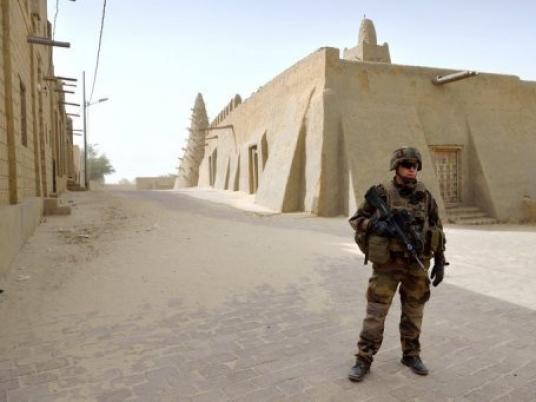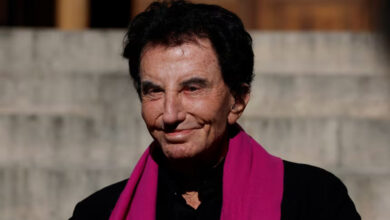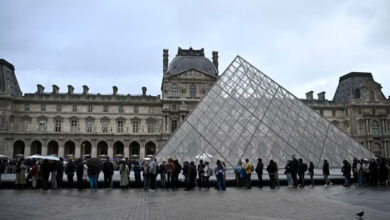
President Mohamed Morsy opposes France’s intervention in Mali even though the campaign, which seeks to restore the Malian government’s control over the north after radical Islamists seized control of it, receives the support of most of the international community.
Experts say the president’s position may be a sign that ideology will from now on drive foreign policy decision making. They also say the presidency’s stance is in line with positions adopted by radical Islamist currents in Egypt.
But Egypt’s efforts to mobilize international condemnation for French intervention in Mali has largely fallen on deaf ears, even among Islamic states, which see Al-Qaeda’s control over northern Mali as a threat to their interests.
President Mohamed Morsy has more than once failed to have Arab or Islamic states denounce the intervention. In fact, the closing statement for the Organization of Islamic Cooperation, held in Cairo two weeks ago, tacitly supported the intervention. In its closing statement, the OIC said that “it supports the current efforts to have the Republic of Mali restore the unity of its land and to re-establish state sovereignty over the entirety of its land.”
Mostafa Kamel al-Sayed, political science professor at Cairo University, says Egypt’s position on the war in Mali reflects the influence of ideology on the decision-making process under Morsy. This position disregards the fact that the majority of Malians support the intervention.
“Morsy’s position is an expression of the ideological solidarity of groups that claim or believe they are fighting for the same purpose,” he went on. “President Mohamed Morsy saw in the developments in Mali as an Islamic revolution worthy of support and that the Western intervention seeks to abort the Islamic revolution, which is an ideological position that most countries of the world do not approve.”
The Arab Economic Summit held in Saudi Arabia disregarded a request Morsy had filed to have member states announce their rejection of the French military intervention in Mail. The summit’s statement did not make any reference to the situation in Mali.
During the summit, Morsy said Egypt rejects the military intervention in Mali, and added that the intervention “promises to fan the flames of conflict in the region.” He emphasized that the intervention has to be “peaceful and developmental.”
Morsy’s position echoes that of the Muslim Brotherhood and Islamist currents, which strongly condemned the French campaign. Some radical groups, such as Salafi jihadis, have gone as far as to threaten harm to French interests.
French intervention in Mali started about a month ago on the request of the Malian government, which solicited help to confront armed groups linked to Al-Qaeda that controlled the north. Paris, meanwhile, downplayed the significance of the Egyptian stance opposed to the intervention, and the French Foreign Ministry dismissed it as representative of a minority within the international community.
Morsy recently called off a scheduled visit to Paris — cancellation that some observers have attributed to the discord over the intervention in Mali. However, at the official level, the presidency said the visit had been canceled over the political turmoil in Egypt since the second anniversary of the 25 January revolution.
The French intervention in Mali came under the auspices of the United Nations, and conforms to Resolution 2085, issued on 20 December. The goal of the intervention, which was requested by the Economic Community of West African States, was to combat terrorism.
The Supreme Islamic Council in Mali, as well as states in the Arab Gulf, Africa and North Africa all expressed support for the intervention, while only Qatar and Egypt rejected it.
Egypt’s position, therefore, is striking, but some analysts insist it is not without explanation. The Arab countries seemingly lone wolf agenda can best be explained by looking at Morsy’s domestic posturing, according to Nageh Ibrahim, a leader from the Jama’a al-Islamiya.
Ibrahim says Morsy’s position on the war in Mali is intended to cajole radical Islamists in Egypt, much like he is attempting to woo radical jihadi groups in Sinai to postpone a likely clash with them until he has addressed issues with liberal and secular currents. Ibrahim says that a clash between the Brotherhood and Salafi jihadi groups is inevitable if the Brotherhood does not exert a real effort to implement Sharia.
“Morsy will have two choices: to either adopt a stance distinct from Salafi jihadis at the expense of relations with the West, or clash with Salafi jihadis. This clash is inescapable,” says Ibrahim.
Egypt’s position will not have negative repercussions on its ties with the West, Sayed believes, unless it begins to translate into arming or logistical assistance.




